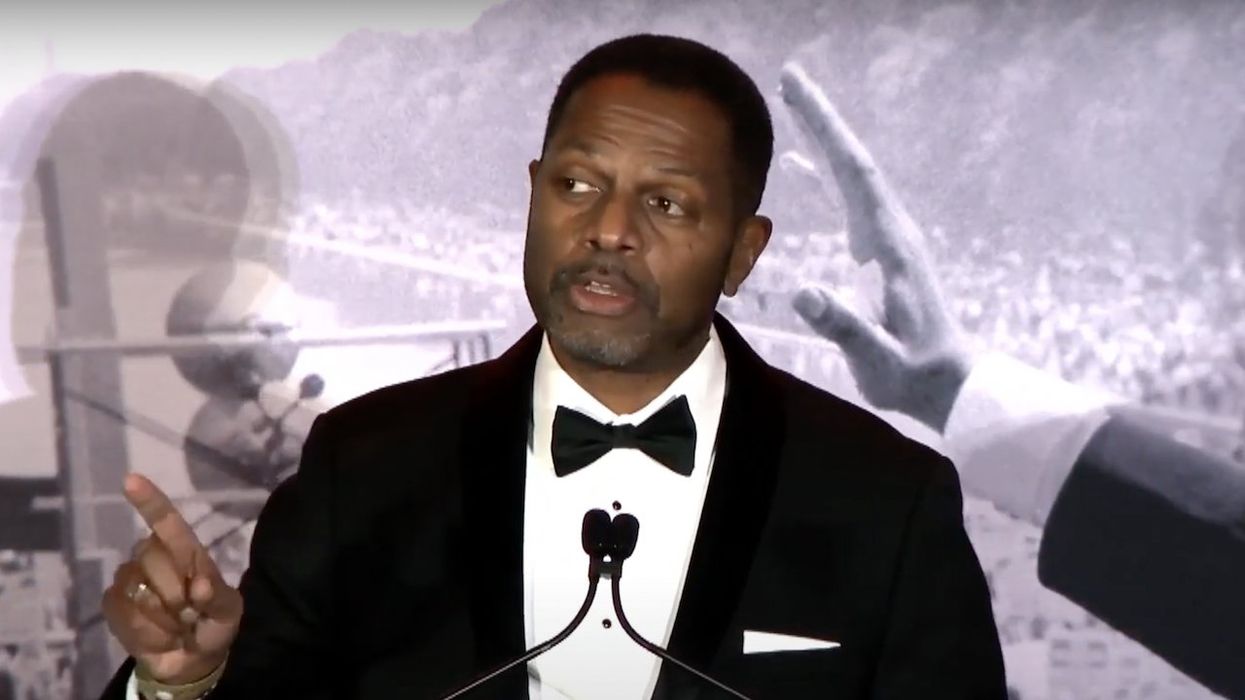© 2024 Blaze Media LLC. All rights reserved.
The growth of the Internet has transformed the global culture. The very foundations of the free enterprise system are under assault.
Colin Hanna is president of Let Freedom Ring, a Pennsylvania-based organization advocating for a constitutional approach to public policy making.
–
September 17 is Constitution Day, a day on which we should celebrate this remarkable founding document and reflect upon its relevance in our daily lives.
Many people think that the main body of the Constitution is all about the structure of government, and that the first 10 amendments to the Constitution, or Bill of Rights, is where rights are covered. However, there are specifically enumerated rights and responsibilities concerning the acquisition of property and its protection laid out in the main body of the Constitution that too often go unnoticed. Principal among these is the protection of copyrights and patents, or what we now call “intellectual property.”
The Founders understood that the government’s obligation to recognize and protect a person’s right to intellectual property was essential if the new nation were to prosper. The exact text in the Constitution reads: “Congress shall have power . . . To promote the progress of science and useful arts, by securing for limited times to authors and inventors the exclusive right to their respective writings and discoveries.”
At a time when intellectual property rights increasingly reside in a unique combination of electrons, zeros, and ones, it is important to reassess the federal government’s responsibility to ensure that the product of our intellectual labors, as expressed as the creation of art literature, films, and scientific achievements, be protected.
The growth of the Internet has transformed the global culture. It has also put the issue of intellectual property at the forefront of what lawmakers must address. The fast-paced transformation in the economy resulting from the proliferation of the Internet has occurred, in part because policymakers were reluctant to impose regulations and to enjoin activities lest the growth of this new technology be impeded. This created an open field for criminals to run roughshod over the legitimate rights of authors, artists and inventors. In the name of freedom, we have passively countenanced lawlessness. Counterfeiting is rampant. Whether in the field of fashion, medicine, entertainment or software, the rights of the original creators to earnings from their creations are being trampled. The very foundations of the free enterprise system are under assault.
The digital age has created increasingly sophisticated forms of counterfeiting. Websites all over the globe act as storefronts where counterfeit goods are sold: everything from computer software to movies to handbags to pharmaceuticals. The United States Department of Commerce estimates it is at least a billion dollar criminal enterprise operating at the expense of hard-working, innovating, taxpaying Americans.
Cyber-piracy increasingly costs the U.S. economy money that instead of creating and supporting jobs goes into the pockets of criminals. The government must act, and swiftly, by exercising its constitutional responsibility to ensure that this trend is reversed. This may require breaking some new ground and should be done only after careful, principled debate, with respect for liberty and adherence to our other, equally important, constitutional rights.
If the framers could understand this matter in the eighteenth century, we must believe the current Congress can grapple with it today. Previous efforts to update our intellectual property protection system were defeated in a flurry of misinformation. The proposed legislation may have been opaque and overly broad, but the concerns expressed by many conservatives and libertarians were overstated.
On this Constitution Day, let’s remember that even in the Founder’s concept of a limited federal government, it is the proper obligation of that government to secure the property of its citizens against lawlessness. Protecting intellectual property is a property rights issue. There is a difference between liberty and lawlessness: We should favor the former and oppose the latter. On Constitution Day we should think about the protection of intellectual property rights on the Internet as a logical, contemporary extension of the basic Constitutional rights of authors, scientists and inventors that our framers set forth so plainly two and a quarter centuries ago.
–
TheBlaze contributor channel supports an open discourse on a range of views. The opinions expressed in this channel are solely those of each individual author.
Want to leave a tip?
We answer to you. Help keep our content free of advertisers and big tech censorship by leaving a tip today.
Want to join the conversation?
Already a subscriber?
more stories
Sign up for the Blaze newsletter
By signing up, you agree to our Privacy Policy and Terms of Use, and agree to receive content that may sometimes include advertisements. You may opt out at any time.
© 2024 Blaze Media LLC. All rights reserved.
Get the stories that matter most delivered directly to your inbox.
By signing up, you agree to our Privacy Policy and Terms of Use, and agree to receive content that may sometimes include advertisements. You may opt out at any time.


